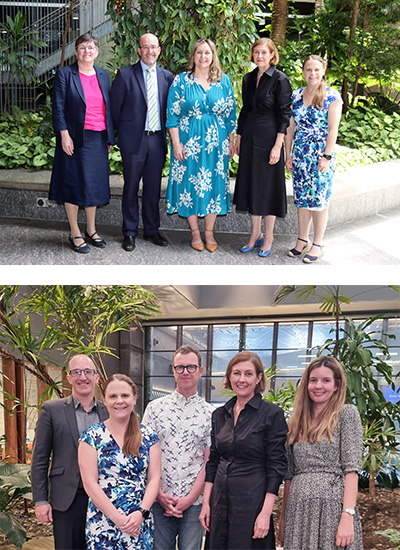NHMRC Partnership Project – NAVICARE, tackles access to mental health care for people in regional and remote areas

Three Bowen Basin communities are the focus of a co-designed project to improve and expand access to mental health services in regional and remote areas under a $780,000 NHMRC Partnership Project.
The project led by Dr Zephanie Tyack, from the Australian Centre for Health Services Innovation (AusHSI) and the School of Public Health and Social Work at QUT, is one of seven collaborative research projects to share in $8 million through National Health and Medical Research Council (NHMRC) Partnership Project grants announced on 5 December.
Assistant Minister for Mental Health and Suicide Prevention and Assistant Minister for Rural and Regional Health Emma McBride said yesterday the funding would support researchers to collaborate with partners across Australia to design and deliver research that improves health and wellbeing outcomes in our communities.
“The projects announced today will lead directly to improvements in health policy, practice and service delivery,” Ms McBride said.
Dr Tyack said the QUT team was partnering with Beyond Blue, Wesley Research Institute, Isaac Regional Council, Greater Whitsundays Communities, mental healthcare providers and Bowen Basin communities for the project.
“Our aim is to improve access to appropriate and timely mental health care for people in outer regional and remote areas in Australia who are disproportionately affected by severe mental health conditions,” Dr Tyack said.
“We will focus on three Bowen Basin communities as examples of regional and remote Australia.
“Our team has already co-designed and piloted NAVICARE, a multi-component model of care that can be implemented and adapted to individual and local needs to support optimal mental health.
Dr Tyack said the team had established a physical NAVICARE hub with a Care Navigator in Moranbah in partnership with Wesley Research Institute in September 2021 and due to increasing demand for the service a second Care Navigator had started in 2022.
“This model of care addresses the issue of ‘navigation to nowhere’ – the lack of available services within the region.”
“Engagement with local service providers and people who used the service will inform the next phase of the research and guide implementation of NAVICARE in new sites,” she said.
“The care navigators’ role is to connect people to formal mental health services and also provide information about social supports and community groups to encourage feelings of community connectedness to reduce social isolation, which is often associated with depression and anxiety symptoms.”
The QUT research team comprises Dr Tyack, Professor Steven McPhail, Dr Bridget Abell, Dr Hannah Carter, and Professor Adrian Barnett, all from the Australian Centre for Health Services Innovation (AusHSI), and Centre for Healthcare Transformation, QUT.
Media contacts
Australian Centre for Health Services Innovation: Sian Conway Lamb, 07 3138 6087, sian.conwaylamb@qut.edu.au
QUT: Niki Widdowson, 07 3138 2999 or n.widdowson@qut.edu.au
QUT: After hours: 0407 585 901 or media@qut.edu.au
Images
Top (L-R): Ms Clare McLaughlin, Acting CEO, NHMRC, Mr Andrew Barron, CEO, Wesley Research Institute, The Hon Emma McBride, Assistant Minister for Mental Health and Suicide Prevention, Assistant Minister for Rural and Regional Health, Dr Zephanie Tyack, Project Lead and Program Co-Lead – Hospital Services, Aand Dr Bridget Abell, Program Lead – Community Health, both at the Australian Centre for Health Services Innovation, QUT Centre for Healthcare Transformation.
Bottom (L-R): Prof Steven McPhail, Dr Bridget Abell, Prof Adrian Barnett, Dr Zephanie Tyack, Dr Hannah Carter, Australian Centre for Health Services Innovation, QUT Centre for Healthcare Transformation.







